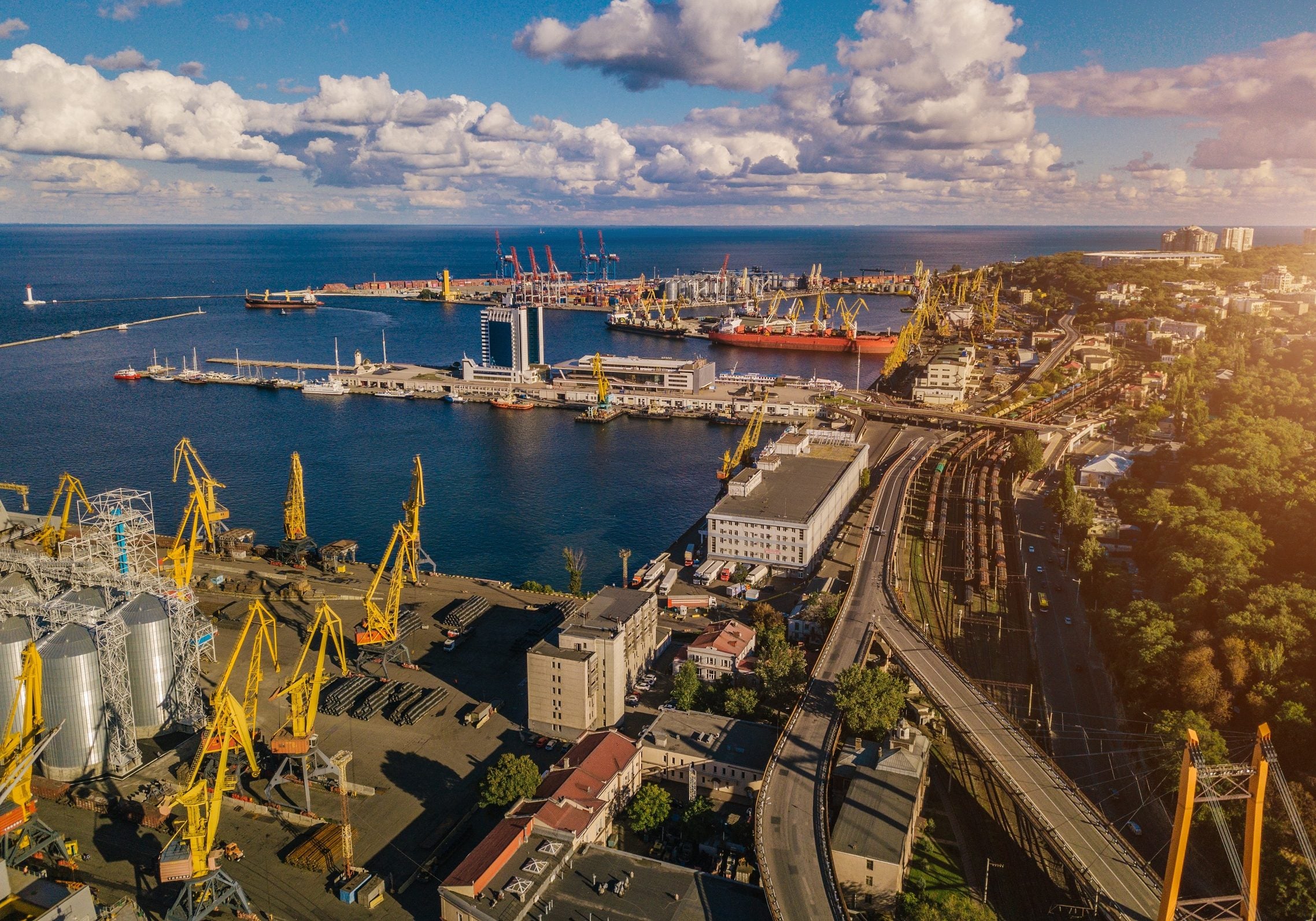
Ukraine President Volodymyr Zelensky said Russia’s decision to terminate the Black Sea grain deal does not mean the export operation is dead in the water.
Speaking yesterday (17 July), the day the initiative was due to be renewed, he said Ukraine, together with the UN and Turkey, can jointly ensure the food corridor stays open even without Russia’s security guarantee.

Discover B2B Marketing That Performs
Combine business intelligence and editorial excellence to reach engaged professionals across 36 leading media platforms.
The Black Sea Grain Initiative, which allowed important commodities such as wheat to leave three of Ukraine’s Black Sea ports unhindered by Russian military vessels, was initially struck last July – five months after Russia’s invasion of Ukraine – and extended three times since. Moscow had continually threatened to withdraw from the deal unless obstacles to its own food and fertiliser shipments were removed and yesterday it made good on that threat.
But President Zelensky said in his statement: “I have sent official letters to President Erdoğan of Turkey and UN Secretary General Guterres with a proposal to continue the Black Sea Grain Initiative or its analogue in a trilateral format – as it is best. Ukraine, the UN and Turkey can jointly ensure the operation of the food corridor and the inspection of vessels.”
Erdoğan was one of the brokers of the original deal and has pushed Russia to continue with the agreement. Whether he would be prepared to commit Turkish military vessels to keep the food corridor open at the risk of escalating the conflict is questionable.
Russia’s decision to rip up its agreement has been condemned amid fears those shipments could create food security issues in poorer nations in Africa and Asia.

US Tariffs are shifting - will you react or anticipate?
Don’t let policy changes catch you off guard. Stay proactive with real-time data and expert analysis.
By GlobalDataOf the 33 million tonnes of grain transported by the deal since it was launched, the majority has been corn and wheat, accounting for 16.9 million tonnes and 8.91 million tonnes, respectively, the UN says. Other food commodities exported include sunflower meal (1.8 million tonnes), sunflower oil (1.6 million tonnes), barley (1.2 million tonnes) and rapeseed (one million tonnes).
This produce has gone to 45 countries across three continents, thanks to the deal, according to the UN. The highest tonnage to date was exported to China (some 25% of the total), followed by Spain, Turkey, Italy, the Netherlands and Egypt.
The US said Moscow’s suspension of the pact “will worsen food security and harm millions” with secretary of state Antony Blinken describing the move as “unconscionable”.
Zelensky said: “Ukraine's position has always been and will be as clear as possible – no one has the right to destroy the food security of any nation. If a bunch of people somewhere in the Kremlin think that they supposedly have the right to decide whether food will be on the table in different countries: Egypt or Sudan, Yemen or Bangladesh, China or India, Turkey or Indonesia… then the world has an opportunity to show that blackmail is not allowed to anyone.”
For its part, Russia has indicated its decision to cancel the agreement is not up for negotiation.
The Russian state news agency Tass quoted a senior Russian official at the UN as saying on Monday that the decision was final.
Russian first deputy permanent representative to the UN Dmitry Polyansky said: "For our part, we are committed to fulfilling all contractual obligations on Russian grain supplies to customers and continuing to provide assistance to those in need in developing countries despite all the obstacles.
"We commend the efforts of the [UN] secretary general and his team, who kept trying to persuade Western countries to fulfil the obligations to Russia arising from the Russia-UN memorandum. However, it produced nothing but smoke and mirrors.”
The last ship carrying left Ukraine on Sunday from the port of Odessa, headed for Turkey.
Overnight, Russia launched a wave of attacks on Odessa and other Ukrainian Black Sea ports. It described them as “mass revenge strikes” in retaliation for attacks by Ukrainian seaborne drones that knocked out its road bridge to the occupied Crimean Peninsula.
From our sister site Investment Monitor: What is the Black Sea Grain Initiative (the ‘Ukraine grain deal’) and why does it matter?




